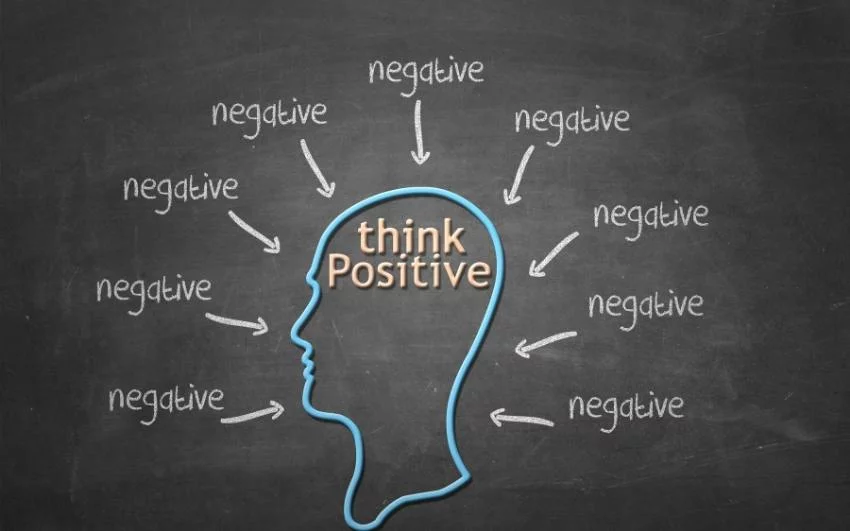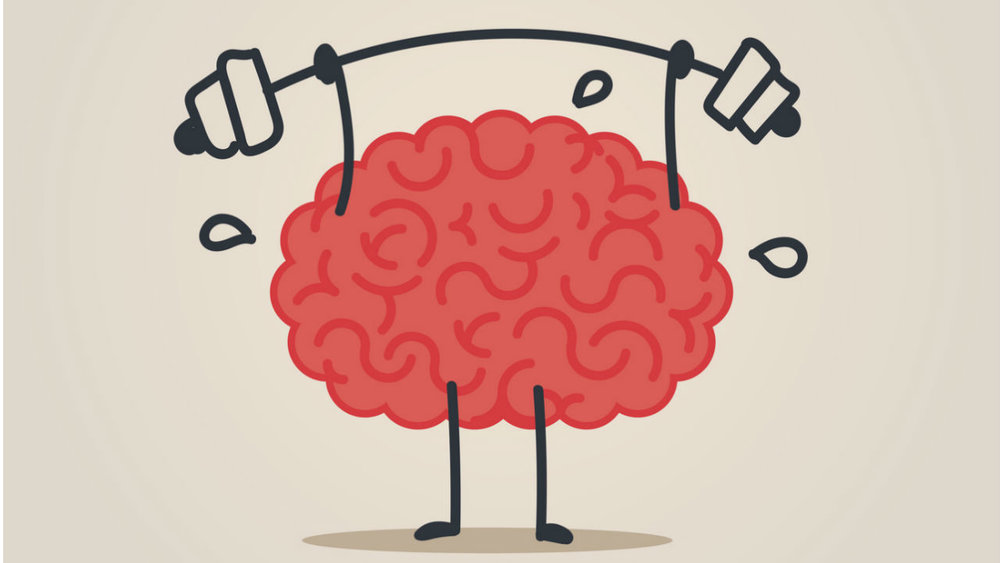Exercise Daily – Sports are not just about physical abilities; they also require mental strength and resilience. One key factor that can significantly impact an athlete’s performance is their mindset. Maintaining a positive mindset is essential for achieving peak performance and overcoming challenges. Let’s explore the power of positivity and provide techniques to help athletes develop and maintain a positive mindset in sports.
A positive mindset is more than just a feel-good mantra for athletes; it’s a crucial element that can significantly enhance performance and overall well-being. Whether you’re a professional athlete or a weekend warrior, cultivating a positive mindset can lead to numerous benefits.
The Benefits of a Positive Mindset
A positive mindset is a state of mind that focuses on the positive aspects of a situation. It involves positive thinking, positive self-talk, and a positive attitude. When athletes practice positive self-talk and maintain a positive attitude, it can have a direct impact on their mental and emotional well-being and physical performance.
The benefits of a positive mindset for athletes extend far beyond the field, court, or track. It encompasses enhanced performance, better mental and physical health, improved team dynamics, and long-term career success. By fostering a positive outlook, athletes can unlock their full potential and enjoy a more fulfilling and successful sports career. Whether through visualization, positive self-talk, or embracing challenges, the power of a positive mindset is a game-changer for athletes at all levels.
Improved Performance
Maintaining a positive mindset helps athletes perform at their best. When athletes believe in themselves and approach challenges with a can-do attitude, they are more likely to take risks, push their limits, and put more effort into their performance. Positive thinkers are also more likely to bounce back from setbacks and learn from their experiences, leading to growth and improvement.
Mental and Emotional Resilience
Sports can be demanding and challenging, and athletes often face setbacks and obstacles. A positive mindset is crucial in helping athletes navigate these challenges and maintain their motivation and determination. It enables athletes to stay positive even in the face of adversity and self-doubt.
Health and Well-being
A positive mindset is essential for maintaining mental and emotional well-being. Athletes who cultivate a positive mindset are more likely to experience lower levels of stress, anxiety, and depression. Additionally, a positive mindset can positively impact physical health, as it promotes a healthier lifestyle and faster recovery from injuries.

Enhanced Performance
Increased Focus and Concentration
A positive mindset helps athletes maintain focus during training and competition. By concentrating on what they can control and letting go of distractions, athletes can stay in the zone, leading to better performance.
Improved Decision-Making
Positive thinking allows athletes to make quicker and more accurate decisions under pressure. Confidence in their abilities enables them to trust their instincts and make split-second decisions that can differentiate between winning and losing.
Greater Resilience
Athletes with a positive mindset are better equipped to handle setbacks and failures. They view challenges as opportunities to learn and grow rather than insurmountable obstacles. This resilience helps them bounce back faster from injuries or poor performances.
Psychological Benefits
Reduced Stress and Anxiety
Positive thinking can lower stress levels by helping athletes manage pressure effectively. A positive outlook reduces the anxiety often accompanying high-stakes competitions, allowing athletes to perform more freely and confidently.
Enhanced Motivation
Athletes with a positive mindset are generally more motivated to train and compete. They set realistic goals and celebrate their progress, which keeps them motivated and committed to their sport.
Improved Mental Health
A positive mindset can contribute to better overall mental health. It reduces the risk of depression and burnout, ensuring athletes maintain a healthy balance between sports and personal life.

Physical Benefits
Better Physical Health
A positive mindset can lead to better physical health. Positive thinking has been linked to lower levels of inflammation and better immune function, which means athletes are less likely to get sick and can recover faster from injuries.
Enhanced Recovery
Optimistic athletes are more likely to follow their rehabilitation programs and remain motivated throughout recovery. This positive approach can speed healing and return them to their sport quicker.
Team Dynamics
Positive Team Environment
A positive mindset can be contagious. Athletes who maintain a positive attitude can influence their teammates, creating a supportive and encouraging team environment. This positive atmosphere can lead to better team cohesion and overall performance.
Leadership and Influence
Athletes with a positive mindset often emerge as leaders within their teams. Their ability to stay optimistic and focused can inspire others, fostering a culture of resilience and determination.
Long-Term Career Benefits
Sustained Career Longevity
Maintaining a positive mindset helps athletes manage the highs and lows of their careers. This balanced approach can lead to a longer, more successful athletic career as they are less likely to succumb to burnout or persistent negative thinking.
Smooth Transition Post-Career
Athletes with a positive mindset are better prepared for life after sports. They can adapt to new challenges and opportunities with the same optimism and resilience they applied in their athletic careers, ensuring a smoother transition to their next phase of life.

Techniques to Develop and Maintain a Positive Mindset
Developing and maintaining a positive mindset requires practice and conscious effort. Here are some techniques that can help athletes cultivate positivity in their mental game:
Positive Self-Talk
Positive self-talk involves using positive affirmations and encouraging statements to counter negative thoughts and self-doubt. Athletes can create a list of positive affirmations related to their performance and repeat them regularly. For example, instead of saying, “I can’t do this,” they can replace it with “I am capable, and I can overcome any challenge.”
Visualization
Visualization is a powerful technique used in sports psychology to enhance performance. Athletes can visualize themselves succeeding in their sport, performing at their best, and achieving their goals. By vividly imagining success, athletes can boost their confidence and motivation, making translating their visualization into reality easier.
Setting Achievable Goals
Setting realistic and achievable goals is crucial for maintaining a positive mindset. When athletes set goals within their reach, they are more likely to stay motivated and experience a sense of accomplishment. Breaking larger goals into smaller, manageable steps can help athletes stay focused and maintain positivity throughout the journey.
Deep Breathing and Relaxation Techniques
Deep breathing and relaxation techniques can help athletes calm their minds and reduce stress and anxiety. Taking deep breaths and engaging in relaxation exercises before and during competitions can help athletes stay centered, focused, and positive, even in high-pressure situations.
Surrounding Yourself with Positive Influences
The people we surround ourselves with can significantly impact our mindset. Athletes should seek out coaches, teammates, and mentors who foster a positive and supportive environment. Surrounding oneself with positive influences can help maintain motivation, provide constructive feedback, and create a sense of camaraderie.

Overcoming Sports Challenges with a Positive Mindset
Sports present numerous challenges, both on and off the field. Here are some specific challenges athletes often face and how a positive mindset can help overcome them:
Dealing with Setbacks
Setbacks are a natural part of any athletic journey. Whether it’s a loss, an injury, or a performance slump, setbacks can be disheartening. However, a positive mindset helps athletes view setbacks as learning opportunities rather than failures. It allows athletes to bounce back, learn from their mistakes, and return stronger.
Overcoming Self-Doubt
Self-doubt can be a significant barrier to an athlete’s success. However, a positive mindset empowers athletes to believe in their abilities and focus on their strengths. By replacing self-doubt with self-belief, athletes can overcome obstacles and perform at their best.
Handling Pressure
Sports often involve high-pressure situations, such as crucial games or competitions. Maintaining a positive mindset helps athletes stay calm and focused under pressure. By embracing the challenge and viewing pressure as an opportunity to showcase their skills, athletes can perform at their peak.

Conclusion
In the world of sports, a positive mindset is a game-changer. It can significantly improve an athlete’s performance, mental resilience, and overall well-being. By practicing positive thinking and positive self-talk and utilizing techniques such as visualization and goal setting, athletes can cultivate and maintain a positive mindset. This mindset enables athletes to overcome challenges, bounce back from setbacks, and perform at their best, even under pressure.
Remember, the power of positivity extends beyond the sports arena. It is a mindset that can be applied to all aspects of life. So, whether you’re an athlete looking to enhance your performance or an individual seeking a more positive outlook, harnessing the power of positivity can lead to personal growth, improved mental skills, and a greater sense of well-being.
FAQs – The Power of Positivity: How to Keep a Positive Mindset in Sports
Q: How does a positive mindset help in sports performance?
A: A positive mindset helps athletes perform at their best by boosting confidence, motivation, and resilience. It allows athletes to overcome setbacks, handle pressure, and maintain focus.
Q: Can a positive mindset improve overall well-being?
A: Yes, a positive mindset can positively impact overall well-being. It reduces stress, anxiety, and depression and promotes a healthier lifestyle and faster recovery from injuries.
Q: What are some techniques to develop a positive mindset?
A: Some techniques to develop a positive mindset include positive self-talk, visualization, goal setting, deep breathing, and surrounding oneself with positive influences.
Q: How can a positive mindset help athletes overcome challenges?
A: A positive mindset helps athletes view challenges as learning opportunities and motivates them to bounce back from setbacks. It enables athletes to maintain belief in their abilities and overcome self-doubt.
Q: Is a positive mindset limited to sports, or can it be applied in other areas of life?
A: A positive mindset can be applied to all aspects of life. It fosters personal growth, improved mental skills, and a greater sense of well-being, not just in sports but in various areas of life.




